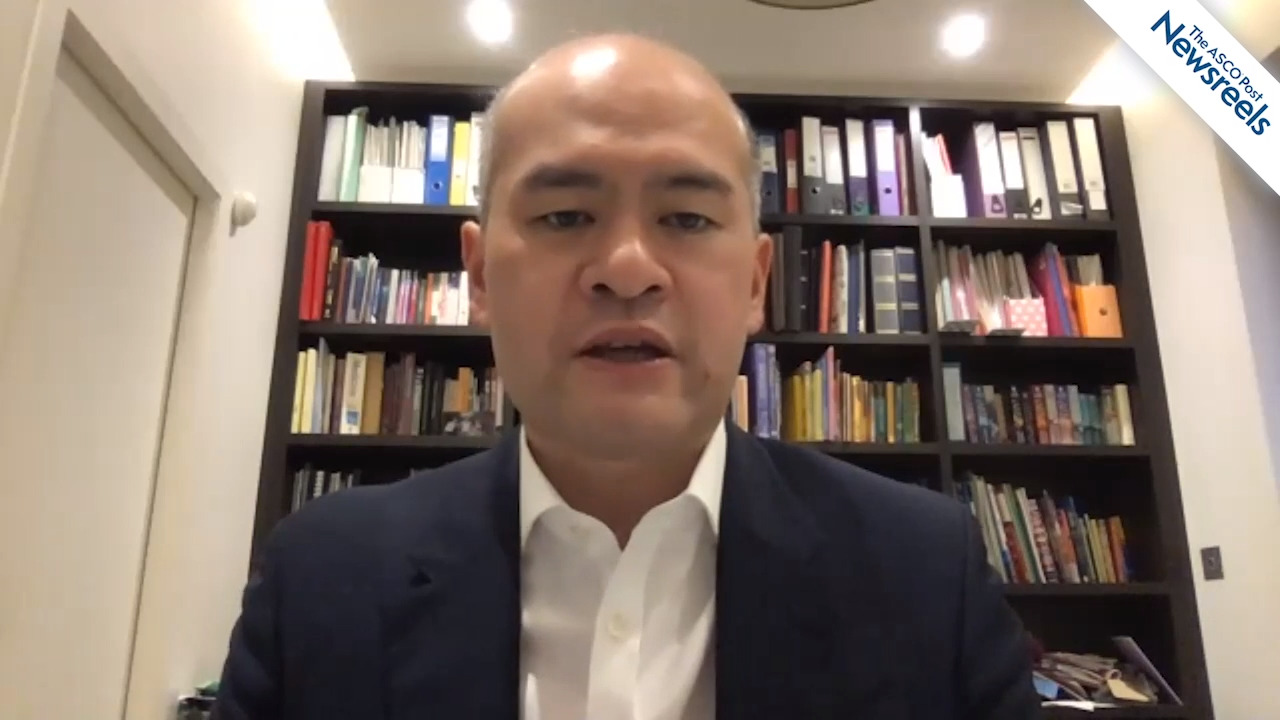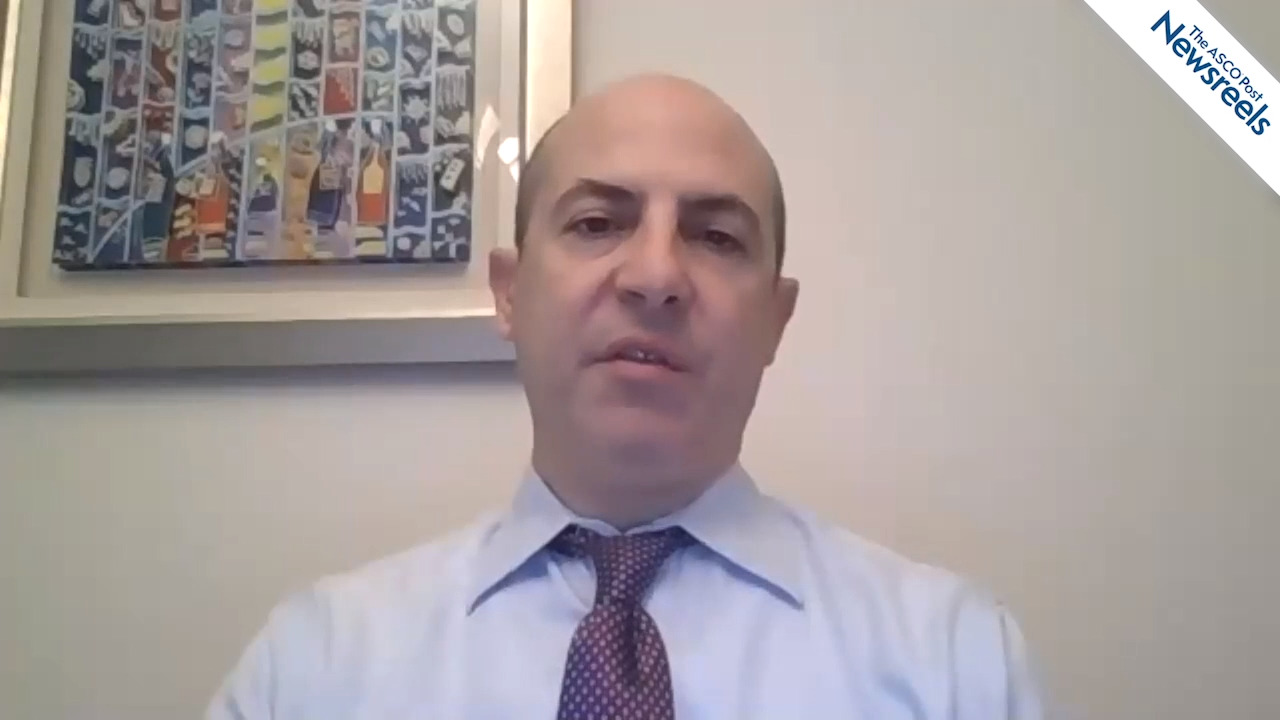Afsaneh Barzi, MD, PhD, on Disparities in Access to Screening and Treatment of GI Cancers
2021 Gastrointestinal Cancers Symposium
Afsaneh Barzi, MD, PhD, of the City of Hope Comprehensive Cancer Center and the University of Southern California, discusses reasons for the incomplete understanding of the molecular landscape of minority patients with cancer, lack of screening chief among them. This underrepresentation, Dr. Barzi says, is more marked in gastrointestinal malignancies than other solid tumors, and she recommends ways to improve the outlook.
The ASCO Post Staff
Rocio Garcia-Carbonero, MD, of Hospital Universitario 12 De Octubre, discusses results of the phase II/III AXINET trial, which showed that axitinib plus long-acting release octreotide improved overall response compared with placebo and octreotide in patients with advanced grade 1 or 2 extrapancreatic neuroendocrine tumors. However, no significant improvement in progression-free survival was observed (Abstract 360).
The ASCO Post Staff
Wasat Mansoor, MBChB, PhD, of The Christie NHS Foundation Trust, discusses phase III results from the KEYNOTE-590 trial, which showed no deterioration in health-related quality of life when pembrolizumab was added to chemotherapy in patients with metastatic and unresectable esophageal cancers (Abstract 168).
The ASCO Post Staff
Andrew X. Zhu, MD, PhD, of Massachusetts General Hospital, discusses final results from the phase III ClarIDHy study, which showed that ivosidenib may improve overall and progression-free survival compared with placebo in patients with previously treated cholangiocarcinoma and an isocitrate dehydrogenase 1 mutation (Abstract 266).
The ASCO Post Staff
Kai-Keen Shiu, MD, PhD, of the University College Hospital NHS Foundation Trust - London, discusses an interim analysis of PFS 2 results (defined as time from random assignment to progression on the next line of therapy or death) from the phase III KEYNOTE-177 trial. This study has already shown that first-line pembrolizumab provides a clinically meaningful and statistically significant improvement in PFS compared with chemotherapy in patients with microsatellite instability–high metastatic colorectal cancer (Abstract 6).
The ASCO Post Staff
Zev A. Wainberg, MD, of UCLA Medical Center, discusses phase II results from the FIGHT study, which combined bemarituzumab with modified FOLFOX6 in first-line treatment of advanced gastric/gastroesophageal junction adenocarcinoma. This is reportedly the first randomized trial of any FGFR inhibitor, validating this target in gastric cancer (Abstract 160).





